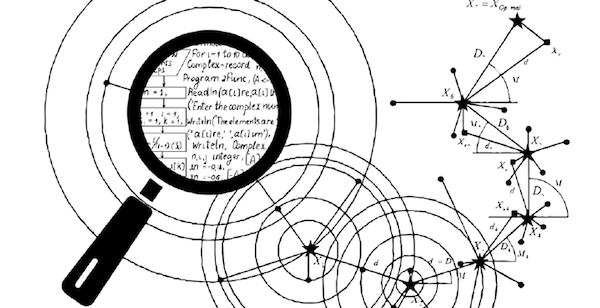5th Digital Economy Summer School
June 28 and 29, 2018, University of MontpellierAs for the previous editions, a great freedom is left to the authors in the choice of the themes.
SourceM@rsouin Seminar 2018
May 31 & June 1, 2018, Le Bono, Auray (56)The GIS Marsouin, a federation of Breton and Loire teams of Humanities and Social Sciences working on digital uses (UBS, Rennes 1, Rennes 2, UBO, Ensai, Sciences Po Rennes, IMT Atlantique, University of Nantes, University of Angers, Le Mans University) is organizing its 16th annual seminar.
Every year in May, the GIS M@rsouin seminar brings together researchers who share a common interest in the upheavals brought about by digital technology in our societies. These reflections mobilize experienced and new researchers in a resolutely interdisciplinary approach. The main axes around which the seminar is structured allow us to address different facets of these upheavals: transformation of sociabilities, power relationships, territories, ways of working, learning, creating, sharing, etc.The proposals of communication will be able to fall under the following axes:
- Digital practices and new social relations of power
- Digital practices and identity, sociability
- Economy and transactions in the digital age
- Digital practices and learning
- Territories and ICT(Source)
Ludovia International Scientific Conference 2018
20-23 August 2018, Ax-les-Thermes, Ariège After the issues of immersion (2006), conviviality (2007), "doing it yourself" (2008), "space(s) and memory(s)" (2009), "interactivity and interactions" (2010), mobility (2011), pleasure (2012), the imaginary (2013) of creation and consumption (2014), appropriation and detour (2015), forms of attention, presence and commitment (2016), sharing, exchange, contribution and participation (2017), the Ludovia Colloquium proposes for 2018 the theme "Innovation(s) / institutions of the digital". The Ludovia Colloquium hopes that communicators will develop reflections on the innovation/institution relationship, without falling into a simplistic dualism and by testifying to the complexity of the processes at work. SourceDigital Tools and Uses Congress
Digital Tools & Uses Congress, Paris, October 3-5, 2018Thisfirst international Digital Tools & Uses Congressaimsto bring together five interrelated symposia: Web Studies, Internet of Things (IoT) Challenges, Recommender Systems, Archives and Social Networks, and Digital Frontiers. Theintention of this consortium is to approach a common object of study from different perspectives in order to enrich the discussion and collaboration among participants. SourceDigital affects: production, circulation and commodification
86th Congress of the Association francophone pour le savoir (ACFAS), February 1-15,2018Digital affects cover the set of emotional enunciations circulating on/via the Web and in/through connected devices. These enunciations can be either the trace that their author has been affected by a phenomenon (digital or not) or the potentiality that it affects another. Affectivity thus refers to the ability to modulate the "power to act" of individuals (Spinoza), especially on networks (Paasonen, 2016). It can be, without exclusion, SMS, posts, tweets, messages; opinions, claims, anecdotes, jokes, speeches, shared experience stories; online advertisements, news reports and headlines, numerical indicators; texts, with or without emoticons, images, photos, selfies, word-diaries, videos and animations, music, quotes, artworks, etc.This conference aims to discuss and put into perspective the affective and emotional turn of the web, and more broadly of the digital economy. In what way do digital devices really allow the production and circulation of affects or emotions? How do organizations fit into this affective web? What are the ethics of "affective data"? SourceInformation-communication: the use of ethics in a digital context
VIth "Digital Document and Society" conference, September 27 and 28, 2018, GrenobleIf ethics is regularly convened in many professional sectors (health, politics, environment, etc.), its reference has become frequent in exchanges from other fields and its issues have today captured the attention of informational and communicational practices as well as for the professions that represent them: journalists, analysts, librarians, documentalists.In the 2018 edition of the Digital Document & Society conference, we are soliciting proposals that delve into these issues concerning ethics in the field of information and communication from the perspective of actor logics, strategies and informational and communicational practices.This sixth conference Digital Document and Society will encourage case studies, observations and feedback, but also theoretical and critical reflections around four axes:- Regulation and self-regulation in the cultural, information and communication industries.
- Algorithms and ethics
- Production and distribution of documents
- The reference to ethics in the public space. Source
Social networks, digital traces and electronic communication
Social networks - digital trails and electronic communication, 6-8 June 2018, Le HavreThe nature of the digital traces, ever more numerous, that users leave voluntarily or not, consciously or not, is an essential question. It is essential, it is even central when it comes to questioning electronic communication. To cross Digital Social Networks (henceforth DSN) and electronic communication, is to always question "these digital networks called social" by noting at the same time that it is the "profiles" which organize today the digital traces and which structure the economy of the data as an object of covetousness of the actors of the field. The conference is organized around five axes:
- Traces, digital identity and the advent of the NSR
- Digital education...
- The political public space in the digital age
- Information, Journalism and Digital Devices
- Digital communication, brands and organizations . Source





